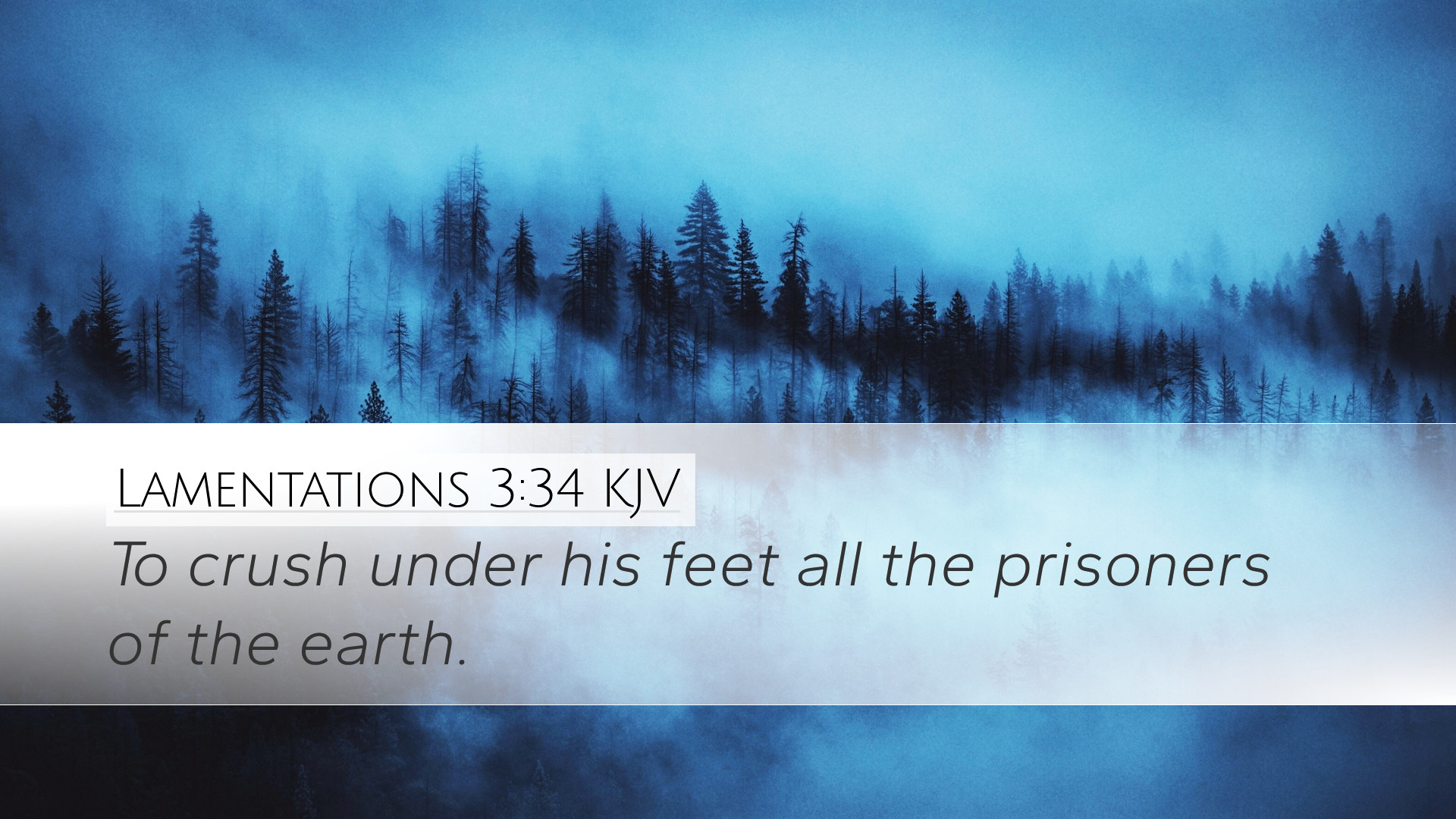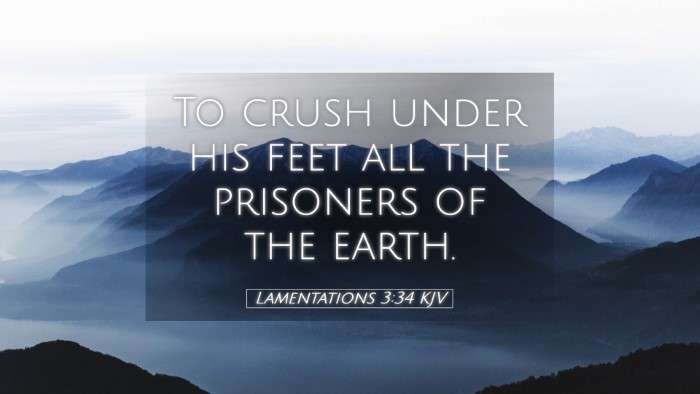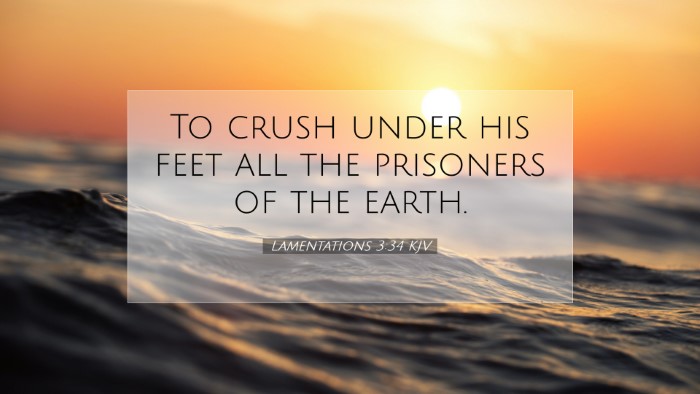Lamentations 3:34: A Commentary
Verse Analysis: Lamentations 3:34 states, "To crush under one's feet all the prisoners of the earth." This verse provides significant insight into the justice and oversight of God amidst the suffering and oppression experienced by His people.
Contextual Background
In the book of Lamentations, the prophet Jeremiah mourns the destruction of Jerusalem and the consequent suffering of its people. This lament is a poignant reflection on the consequences of sin, divine judgment, and the purity of God's justice. Lamentations is not merely a testament of sorrow but serves as an exploration of God's character, particularly in relation to human struggles.
Historical Context
Jeremiah, witnessing the devastation of his beloved city, penned these laments during a time of profound anguish. His perspective is crucial for understanding the emotional and spiritual turmoil of a people caught in the consequences of their own actions. This context underscores the significance of God's justice and mercy.
Thematic Implications
This verse highlights the theme of divine justice. It depicts God's perspective on oppression and the perils of human pride. The metaphor of "crushing underfoot" serves as a powerful illustration of the ultimate power dynamics where God reigns supreme over all creation, holding rulers and nations accountable for their treatment of others.
Divine Justice
- Accountability: Commentators such as Matthew Henry emphasize that no act of oppression escapes God's notice. His justice ensures that those who abuse their power will not go unpunished.
- Hope for the Oppressed: Adam Clarke points out that this verse serves as a reminder of hope for those suffering, asserting that God will ultimately right the wrongs and bring about justice.
- God’s Sovereignty: Echoing Albert Barnes, this passage highlights the sovereignty of God, affirming His authority over all earthly events and injustices.
Spiritual Implications for Believers
The message conveyed in Lamentations 3:34 serves as a dual reminder: for those who wield power, it is a call to righteousness; for the oppressed, it is an assurance of God’s unyielding justice.
For Leaders:
- Call to Righteousness: Leaders are urged to act justly, remembering that ultimate authority and judgment rest with God.
- Service to Others: The exhortation to serve rather than oppress resonates with the teachings of Jesus, emphasizing servant leadership.
For the Oppressed:
- Comfort in Suffering: Those suffering injustice may take comfort in the assurance of God’s providential care, trusting in His timing for justice.
- Resilience in Faith: Sufferers are encouraged to remain steadfast in faith, believing that their cries are heard and that God will intervene.
Reflections on God’s Character
This verse invites deeper reflection on God's nature—His desire for justice and His compassion for the broken-hearted. Lamentations serves as a profound reminder that God sees the plight of the oppressed and holds those who commit injustice accountable.
The Heart of God
As expressed by Matthew Henry, God is portrayed not as an impassive ruler but as one intimately aware of the suffering of His creation. This deep concern for justice underscores the relational aspect of God's character, inviting believers to align their hearts with His.
Transformative Justice
Adam Clarke suggests that understanding God's justice transcends mere punishment; it is transformative, aiming to restore right relationships and ultimately bring reconciliation. This perspective is crucial for understanding the depth of God's love and the hope of redemption.
Conclusion
Lamentations 3:34 stands as a profound reminder of God's commitment to justice amidst human suffering. It serves as both a warning and a promise—a warning to those in power about the consequences of oppression and a promise to the afflicted that God sees their plight.
As pastors, students, theologians, and scholars reflect on this verse, may it encourage a deeper understanding of divine justice and inspire action towards a just society, aligning with God's heart for the oppressed and His sovereign oversight of all things.


